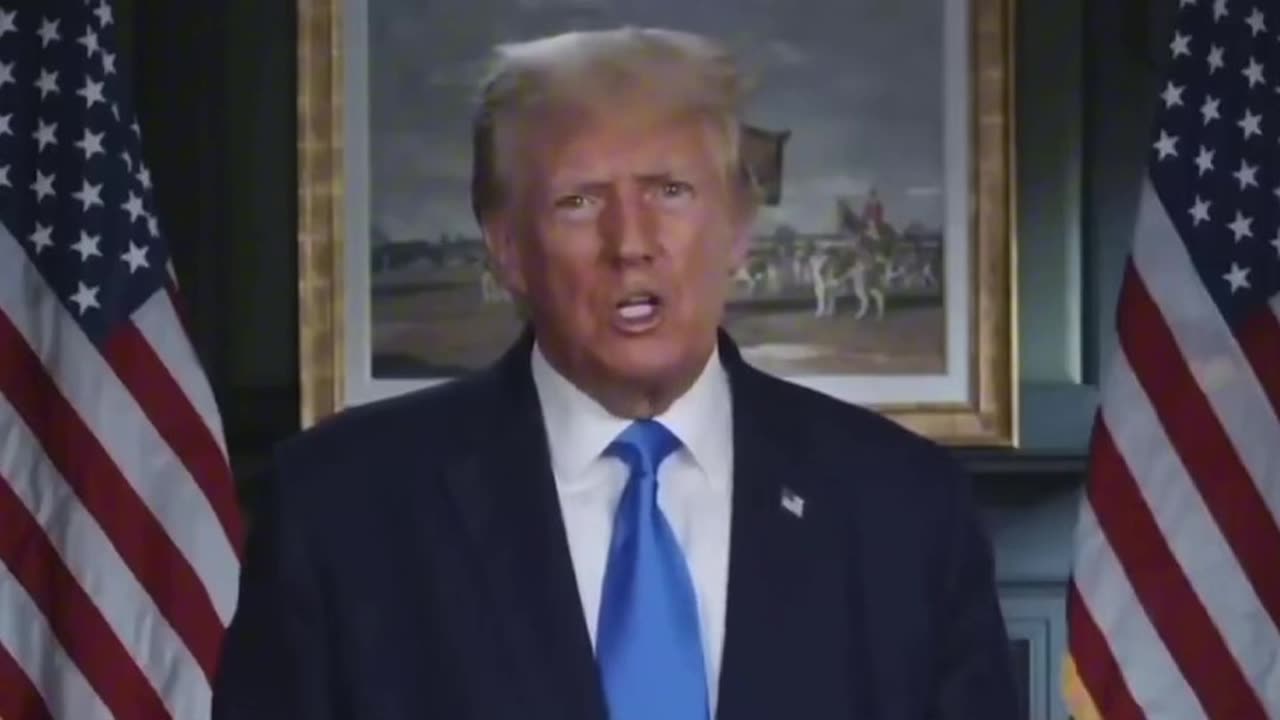Premium Only Content

Decentralizing Education: Analyzing Donald Trump’s Proposal to Dismantle the Department of Education
Donald Trump’s recent remarks about closing the Department of Education and returning control of education to the states represent a significant pivot in the approach to federal oversight of America’s schools. His proposal aims to address longstanding frustrations over educational outcomes, inefficiency, and federal overreach. While the idea has garnered support from advocates of local governance and school choice, it also raises profound questions about equity, standardization, and the future of American education.
This article delves into the implications of dismantling the Department of Education, analyzes its potential impact on students, educators, and communities, and envisions what such a shift could mean for the future of education in the United States.
The Case for Decentralization
1. Cost vs. Performance:
• Trump’s critique of America’s education system highlights a stark reality: despite spending more per student than nearly any other nation, the U.S. ranks near the bottom in educational outcomes among developed countries. Advocates for decentralization argue that removing bureaucratic inefficiencies could allow states to allocate resources more effectively.
2. Local Control and Accountability:
• Proponents of returning education oversight to the states believe that local governments are better equipped to understand and address the unique needs of their communities. By removing federal mandates, states could design curricula and policies that align with their values and priorities, fostering a sense of ownership and accountability.
3. Reducing Bureaucracy:
• Critics of the Department of Education often cite its sprawling bureaucracy as a hindrance to meaningful reform. Trump’s proposal suggests that by eliminating federal oversight, funding could be redirected to classrooms and teachers rather than administrative overhead.
Potential Benefits of State-Led Education
1. Innovation Through Diversity:
• Allowing states to experiment with different educational models could lead to innovative approaches to teaching and learning. States could pilot new programs tailored to their populations without the constraints of federal mandates.
2. Increased Parental Involvement:
• Decentralization might empower parents to play a more active role in their children’s education. States could expand school choice initiatives, including charter schools and voucher programs, giving families greater control over where and how their children are educated.
3. Cultural Relevance:
• Local control could enable states to design curricula that reflect their cultural and historical context, creating a more relatable and engaging educational experience for students.
Challenges and Risks
1. Equity Concerns:
• One of the primary functions of the Department of Education is to ensure equal access to education for all students, regardless of race, income, or geography. Without federal oversight, disparities in funding and resources between wealthy and poor states—or even between districts within the same state—could widen, exacerbating inequality.
2. Standardization and Mobility:
• Federal standards, such as those set by the Every Student Succeeds Act (ESSA), ensure a baseline level of consistency across the nation. Without these standards, students moving between states could face significant disruptions in their education, and employers might struggle to assess the qualifications of job candidates educated under vastly different systems.
3. Special Education and Civil Rights Protections:
• The Department of Education plays a critical role in enforcing laws like the Individuals with Disabilities Education Act (IDEA) and Title IX. Returning control to the states raises questions about how—or whether—these protections would be upheld consistently.
Implications for the Future
1. Reshaping Federal Roles:
• If the Department of Education were dismantled, the federal government’s role in education would shift dramatically. Agencies like the Department of Health and Human Services or state-level coalitions might need to step in to address gaps in funding and oversight.
2. Economic Impact:
• Closing the Department of Education would free up billions of dollars currently allocated to federal education programs. How these funds are redistributed—whether back to the states or toward deficit reduction—would have significant economic implications.
3. Educational Experimentation:
• Decentralization could spark a new era of educational experimentation, with states serving as “laboratories of democracy.” Successful programs could be adopted by other states, creating a bottom-up approach to reform.
4. Polarization and Culture Wars:
• Returning control to the states could intensify existing divisions over issues like school curricula, LGBTQ+ rights, and the teaching of American history. States with differing ideological leanings might implement vastly different educational policies, deepening cultural divides.
Envisioning a Decentralized Future
1. The Rise of Local Governance:
• In a decentralized system, local school boards and state governments would play a central role in shaping education policy. This could lead to a greater diversity of educational experiences but also require increased vigilance to ensure accountability and equity.
2. Collaborative Networks:
• Without federal oversight, states could form regional or national coalitions to share best practices, pool resources, and address shared challenges. Technology could facilitate collaboration and data sharing across state lines.
3. Empowering Educators:
• Decentralization could empower teachers to adapt their methods to the needs of their students without the constraints of federal mandates. However, this would require significant investment in professional development and support for educators.
Conclusion: The Road Ahead
Donald Trump’s proposal to dismantle the Department of Education is a bold and controversial idea that challenges the very foundation of federal involvement in American schools. While it holds the promise of innovation, local control, and reduced bureaucracy, it also risks deepening inequality and undermining national cohesion.
The future of education lies not in choosing between federal oversight and local control but in finding a balance that ensures equity, fosters innovation, and prepares students for the challenges of a rapidly changing world. As the debate continues, the question remains: can a decentralized system deliver on the promise of a better education for all, or will it widen the divides that already plague America’s schools?
Only time will tell, but one thing is certain: the decisions made today will shape the future of generations to come.
-
 1:29:31
1:29:31
Russell Brand
3 hours agoBREAK BREAD EP. 9 - BRANDON LAKE
111K7 -
 3:12:17
3:12:17
Matt Kohrs
13 hours agoLive Trading $1M, The Bitcoin Pump & New Squeeze Alert || The MK Show
27.1K2 -
 LIVE
LIVE
LFA TV
15 hours agoBAN TRANS! | LIVE FROM AMERICA 12.17.24 11am EST
5,482 watching -
 5:46
5:46
China Uncensored
16 hours agoChina Just Lost a Quarter TRILLION Dollars
31.1K3 -
 23:26
23:26
Dave Portnoy
3 hours agoDavey Day Trader Presented by Kraken - December 17, 2024
66.5K8 -
 13:35
13:35
Neil McCoy-Ward
3 hours agoThis Is The CRAZIEST Situation I've Researched All Year...
24.1K8 -
 1:35:59
1:35:59
Dad Dojo Podcast
3 hours ago $2.14 earnedEP13: Youth Sports: Specialization vs Versatility
32.9K -
 1:06:44
1:06:44
2 MIKES LIVE
3 hours agoTHE MIKE SCHWARTZ SHOW with DR. MICHAEL J SCHWARTZ 12-17-2024
43.9K1 -
 36:14
36:14
BonginoReport
4 hours agoAfter Weeks of Cheering on Gun Violence, Left Calls for Gun Control (Ep.106) - 12/17/2024
70.3K119 -
 2:58:50
2:58:50
Wendy Bell Radio
7 hours agoThe Swamp's Chickens Come Home to Roost
64.9K55